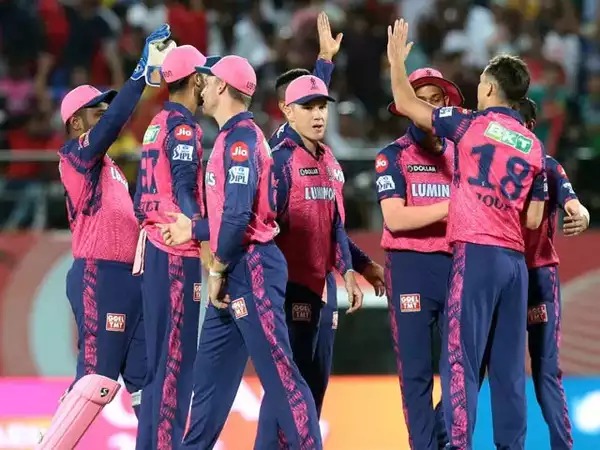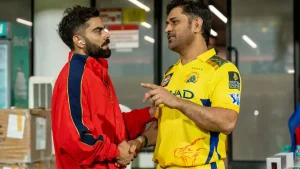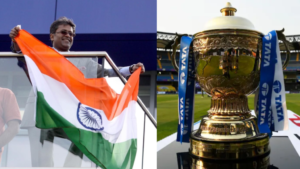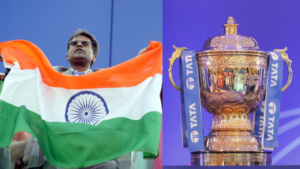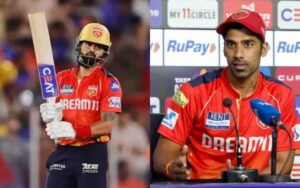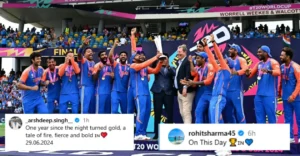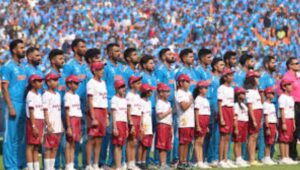It’s already been a week since Ravindra Jadeja’s heroics gifted MS Dhoni and company their fifth IPL title, but the world of private equity is already plotting the future of the Indian Premier League (IPL) and other international T20 competitions.
Two weeks ago, Tiger Global, a $51B fund that has minted over 220 unicorns in its portfolio – including backing companies like Flipkart, Zomato, Ola, Delhivery, and Dream11 in India – expressed interest in investing $40 Million in the Rajasthan Royals franchise, valuing it at $650M.
Rajasthan’s journey in IPL 2023 may have abruptly stopped in the 66th match of the 74-game tournament, but their financial prospects got a significant fillip three days later with the Tiger deal.
This is not the first time that the franchise has attracted interest from the private equity world – in 2021, US-based Redbird Capital invested in secondary shares valuing the franchise at $250 Million. The said private investment firm is owned and run by Gerry Cardinale and Alec Scheiner, who have stakes in sporting properties such as the Yankees YES Network, Fenway Sports Group, Italian soccer team AC Milan, and have experience running organizations such as the NFL’s Dallas Cowboys and Cleveland Browns.
At the inaugural auctions in 2008, the Rajasthan franchise was valued at $55M, the lowest at that point in time. Since its inception till date, its value has risen more than a 1000%. Some of these private-equity deals have given the franchise owners some liquidity and thus established the fact that the franchise-led model in Indian cricket has real economic value.
In October 2021, as the IPL expanded from eight to ten teams, CVC Partners, Europe’s largest private equity firm with over GBP 100B assets under management, became the franchise owners of the Gujarat Titans by shelling out $700 Million.
The Donald Mackenzie-Steve Koltes-Rolly van Rappard-led buyout giant became the first Western private-equity group to take sole ownership of an IPL team. They beat Avram Glazer’s Lancer Capital, a private-equity group that owns Manchester United and the NFL’s Tampa Bay Buccaneers. The quality of the bidding war further illustrated the level of private-equity interest in Indian cricket.
CVC had made failed bids for RR and the Delhi Capitals in 2017-18, but once the new tenders were released, they left no stone unturned to pounce on the opportunity and cross the line this time around.
Alongside CVC and Tiger Global, a private group from Saudi Arabia has recently approached the BCCI to approve and bless a new tournament in the Gulf state, which could potentially become the richest T20 fixture in the annual calendar as they are willing to offer players from the existing IPL franchises year-long US$6.2 Million contracts to play in Saudi, which is about five to six times the vakue of the annual contracts handed out by the national cricket boards from England and Australia.
Given the recent investments that Saudi has made in sports such as golf, boxing, soccer, and F1, it only seems natural for them to set their sights on the second-most popular sport in the world at the moment.
Also Read: The Paradigm-shifting IPL Economy – 16 seasons, and an Average Franchise Value of a Billion Dollars
Even in the inaugural Women’s IPL that commenced in March this year and attracted a combined value of US$598 Million, an India-owned private equity fund called Capri Global Holdings invested in a winning bid of US$97 Million.
With such massive global interest from private investors, one wonders why the sudden interest in Indian cricket and what is the basis of the private investment thesis?
Also, whether these private investments will fuel and benefit Indian cricket?
A few macro drivers that have made Indian cricket Return on Investment (ROI) positive is that the economic liberation of the Indian economy fueled a massive consumption boom in the domestic economy across industries, consumer goods, and the sport of cricket. The deepening penetration of cable TV, mobile phones, broadband Internet, and OTT apps further ensured that the sport reaches millions of households.
As per official reports from Disney’s Star Sports, the first 66 matches of IPL 2023 were enjoyed by around half the TV-viewing universe in India ~ over 482 Million viewers, beating the previous high of 479 Million viewers during IPL 2019. Over 350 billion minutes of watch time during the summer, with some matches registering concurrent peak viewership of over 56 million!
These staggering growth figures are thanks to Disney Star’s IPL mega cast in nine languages and 13 feeds; their ‘Better Together’ marketing blitzkrieg campaign that fueled familial and community viewing, which led to a 60% annual growth in kids under 14 watching the tournament with their families; offering innovations like instant replays, key moments, live statistics, live feed with subtitles for commentary and highlights on the press of a button in their remotes that added 11 Million subscribers during this year’s IPL; augmented feed with Dolby ATMOS immersive, cinematic audio experience; broadcasting sample matches to attract new viewers from the 40 Million Free-To-Air viewers in India; running the ‘Rivalry Week’ & ‘Race to Playoff’ campaigns in week 6 and 7 of the tournament to arrest any potential decline in viewership; running micro-screenings and community watch parties offline, apart from hosting the Incredible Premier League School Quiz roping in 10,000 schools across India definitely aided in brand building and offline fan engagement.
In modern, digital-friendly India, the battle for eyeballs is beyond the realm of television and inside smartphone screens, thanks to Indians enjoying the third-cheapest broadband data connectivity in the world at $0.17 per GB of mobile data.
On the OTT front, Jio Cinema enjoyed a massive 4X bump in its free-to-air app penetration during this year’s IPL, where its market penetration shot up to 40%. The tournament also brought in 72% of its new installs during the 74-match window, and its open rate increased 26%.
The average session time on the OTT app increased 5.6x to 657 mins. Across all metrics, the delta for Jio Cinema was significantly higher than what the Disney Hotstar app had previously enjoyed.
A lot of this engagement per session can be attributed to some pathbreaking fan engagement technological innovations on the OTT app, starting with a high-quality 4K channel stream as well as 4 camera angle views, including the Bird’s Eye, Stump, Cable, and Batsman camera views apart from the primary camera angle.
It definitely helped that both the TV and the OTT channel invested in over 170+ superstars, including ex-IPL legends, to host the broadcast shows across 12 languages.
IPL 2023 is expected to generate ad revenues close to $550 Million, with JioCinema’s digital OTT platform accounting for more than 60% of it, based on at least 13 billion aggregate video views.
This massive growth in viewership and engagement across TV and OTT are definitely early indications that justify the $5.7B committed by Disney Star and Viacom 18 for the ongoing five-year media-rights cycle that ensures that at a per-game level, an IPL match fetches more than the NBA, MLB and EPL.
Private equity-backed owners and investors like CVC Partners and Tiger Global must be very encouraged by these growing viewership and advertisement-revenue numbers as their franchise teams stand to earn 50% of the media rights, title, and associate sponsorship revenues apart from 80% of proceeds from stadium ticket sales and team-level sponsorships and advertisements.
This revenue-sharing model of the IPL further assures the investors that, unlike global leagues like European soccer, the ten franchise owners make regular profits and don’t have the annual prospect of their teams being relegated to lower divisions. This has ensured that all IPL teams are profitable today and valued at a billion dollars on average.
In a recent post. New York University’s Professor Scott Galloway commented, “Historically, the economics of sports teams are ugly. Despite being one of the most iconic assets in sports, Manchester United lost GBP 116 Million last year and GBP 92 Million the year before. At one point, the Brooklyn Nets were losing US$ 395,000 per day.” But the IPL economic model protects many of the potential downsides for franchises and their investors through the near-guaranteed share of central revenues. Also, what helps is that despite the staggering growth over the last decade, there is still a massive white space yet to be captured and capitalized on.
Luv Parikh, a private-equity investment professional based in Singapore, says, “I was happy to see a private equity firm like CVC taking a controlling stake in an IPL franchise. It brings sizeable institutional capital into sports franchising in India, which will only further professionalize the IPL and cricket in India, while improving transparency and governance standards. Clearly, the franchisee economics are now well established and profitable, with revenue streams such as sharing of broadcast and streaming revenue with BCCI, in-stadia advertising, team sponsorships, merchandise, fantasy leagues, etc.”
He adds, “In its 16th year already, there is plenty of data one can analyze on profitability and cash-flow trends to develop a value-creation plan and make an investment casework, especially on pure cash-on-cash or hold-forever basis. The IPL’s franchise operating model is relatively stable and has lent itself to innovations, creating multiple digital revenue streams around the main business.
Also Read: How the First Night Set the Tone for India’s Enduring IPL Affair
Luv’s only concern is that “the key will be if and when a private-equity firm wants to exit and monetize its stake. I think a strategic sale is the most likely exit, and I am sure the BCCI will have a say in approving the new buyer for whom there are already stringent pre-qualification requirements on who can qualify to own a franchise. Likewise, on the minority equity investment by Tiger Global, other than the potential illiquidity of a minority stake, I would think it has the same characteristics, benefits, and risks as the CVC investment. Overall, the sheer size and value-creation opportunity of an IPL franchise investment is hard to ignore for funds that target media, entertainment, and consumer investments in India.”
Beyond the growing domestic consumption and engagement with the IPL franchise, the other major factor that draws the attention of private-equity investors is the fact that the T20 franchise format is spreading its wings internationally. Many of the IPL franchises already own teams in ongoing leagues in South Africa, UAE, and the Caribbean, and very soon, it will set up a beachhead in the United States of America with Major League Cricket (MLC).
These investors are betting on the fact that the sport of cricket today appeals to a broader family audience as an entertainment product, will lure both the large local diaspora from cricketing nations as well as the global fans who want to follow their cricketing idols, and has a mature business model with multiple revenue streams from digital broadcasting, sponsorship and advertising to merchandising.
The MLC will see six teams competing in Dallas from July 13-30 this year, and the tournament is being backed by prominent tech founders and businessmen, including Satya Nadella, Ross Perot, Sanjay Govil, Anand Rajaraman, and Tanweer Ahmed, among others.
The internationalization of cricketing leagues not only promises to open new revenue streams but will benefit from Tiger Global and CVC Partner’s global network and expertise in managing sports deals in the Western markets.
Over the 25 years of the firm’s existence, investors like CVC Partners have made a $600M profit on a Moto GP deal and another $1.5B from the momentous F1 investment. They currently own 10% of the game rights in the Spanish La Liga; 14% in rugby’s Six Nations as well as with minority stakes in both the Gallagher Premiership and United Rugby Championship and a US$300M investment with the International Volleyball Federation to help grow the sport of volleyball.
Beyond the infusion of capital, validation, credibility, and access to global networks, the benefit of private-equity investments is that they typically bring in professional management with the arduous task of scaling profits and driving financial exits within a ten-to-twelve-year period.
Unlike celebrity-backed teams, the players are the heroes at the forefront and enjoy the limelight, whilst the management team works in the background on the commercial and operation aspects of the venture. The exit horizon ensures liquidity in the league, and the profits can be utilized for reinvesting in the franchise, further international growth, or passing on as returns to the LPs of the fund.
Over the last five years, private-equity funds have been sniffing out the opportunity in India and given the tantalizing prospects of Indian cricket, they have grabbed on to it with both hands and are here to stay and fuel the growth of the sport. With the billions of IPL dollars and the additional US$230 Million per year that it is likely to earn from the ICC, one hopes that the BCCI will leverage this cash reservoir to develop the sporting infrastructure and talent base at the grassroots level, invest heavily to develop and promote the women’s game, provide much-needed international exposure to our junior cricketers and massively improve fan-engagement experiences in stadia, which has been a sore point for a long time.
On a recent BBC’s Tailender podcast, Rajasthan Royals’ Manoj Badale commented that Test cricket needed to be “more of an event and have it at the same time every year, played between a small set of nations that can actually afford it, and Lord’s becomes like a Wimbledon, an event that is in the diary.” He said this would allow it to attract fans who continue to favor the game’s shorter offerings, particularly T20, and he expected IPL franchises set to “become bigger entities” and “play in more major and minor leagues.”
This is the massive global opportunity that Indian cricket has to capitalise on to become a sporting superpower, and this ambition can only be realized through large-scale, institutionalized private-equity funds, for whom this is too lucrative a growth opportunity to pass on.
Also Read: The day world cricket changed forever.
The post Will Private Equity Fuel Indian Cricket’s Future? appeared first on RevSportz | Latest Sports News.
It’s already been a week since Ravindra Jadeja’s heroics gifted MS Dhoni and company their fifth IPL title, but the world of private equity is already plotting the future of…
The post Will Private Equity Fuel Indian Cricket’s Future? appeared first on RevSportz | Latest Sports News.

